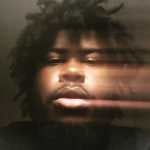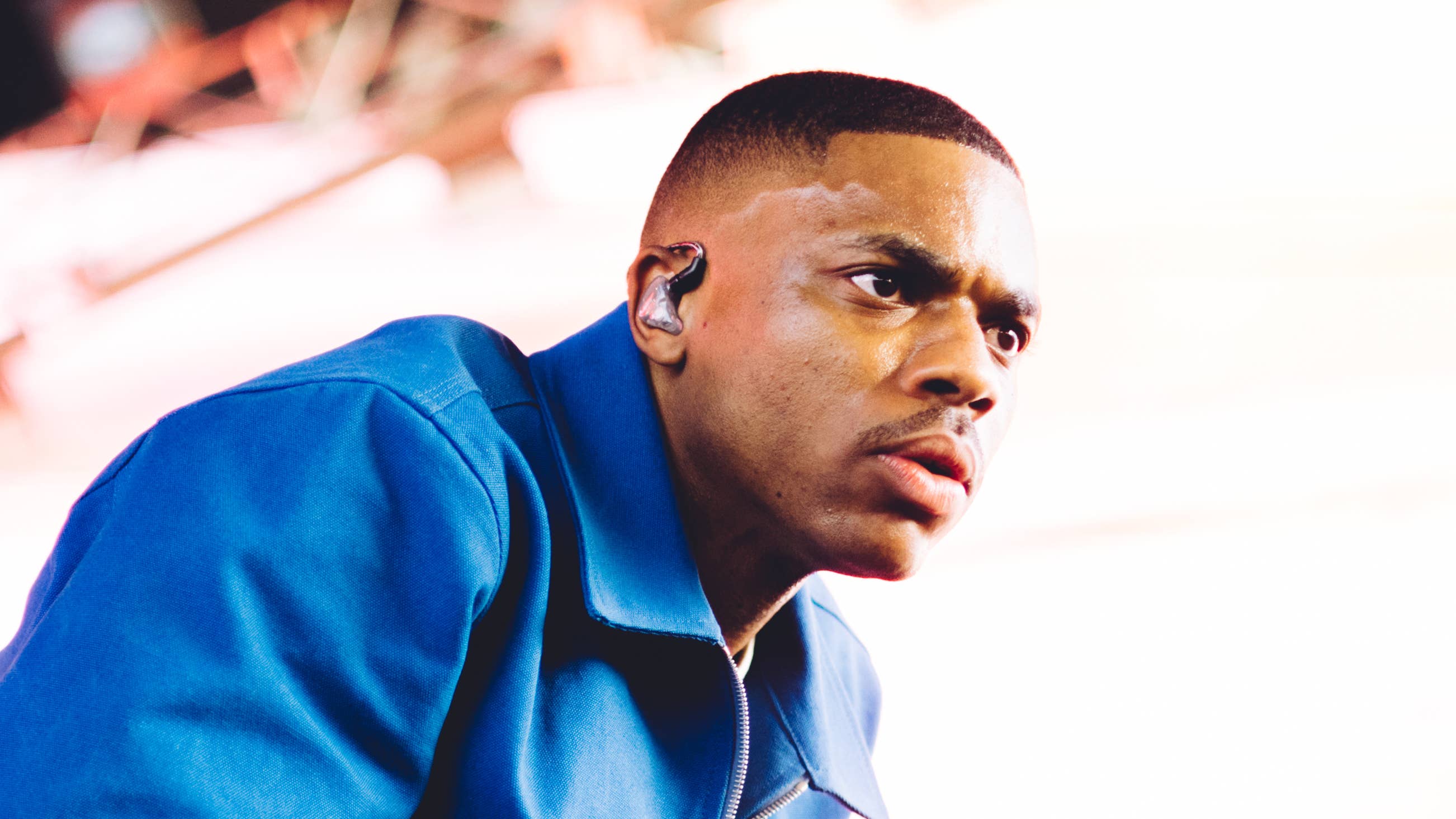
Vince Staples went viral earlier this month when he told Complex that he doesn’t invite friends, romantic interests, or anyone else to his home. With a laugh, he explained to Speedy Morman that only his loved ones (and court) know where he even lives. “Why would [anyone else] know where I live at?” he incredulously asked.
His revelation could be nothing more than a character quirk, but it was a timely turn of conversation in the aftermath of his latest release, Ramona Park Broke My Heart. The sanctity of home is especially vital for Vince Staples, the Long Beach scribe whose candid lyrics depict the weariness of his hometown. His catalog makes the trenches of sunny Southern California feel dreary. Rhymes like “your first rap can be a murder rap” on Ramona Park opener “The Beach” cast a cloud over his surroundings, making one ponder how our perspectives are shaped by home not feeling like a sanctuary.
Hip-Hop is obsessed with home. The first thing most people want to know about an act is where they’re from, because, even in 2022, their upbringing is a strong indication of their accent, slang, their production choices, and their content. The internet has birthed international SoundCloud and Discord communities full of artists who transcend region, but there are still MCs who flout their native cities’ flag without even trying. As a New York-based writer, I can tell Brooklyn drill from Bronx drill. On Ramona Park standout “East Point Prayer,” we hear the difference between Lil Baby’s Atlanta twang and Vince Staples’ hardened SoCal accent.
Our communities mold us, but as Vince Staples laments, it’s not always for the best. The album intro, “The Beach,” starts out with the serene sounds of a calm day at the beach, but the silence is splintered by Vince rhyming about being an “everybody killer.” In other words, anybody can get it. The song ends with gunshots and screams. The juxtaposition is jarring. Transplants may visit LA to take in the lush atmosphere and expansive beaches, but for too many LA natives it’s “live by the gun, die by the sand,” like Vince rhymed on “Bang That.”
The project’s soundscape carries a similar yin-yang dynamic, with a sunny, smooth soundscape ripe for cruising through LA and taking in the surroundings, juxtaposed with grim lyrics that remind how harrowing the wrong turn can be. The LeKen Taylor-produced “Free The Homies” is a balmy, synth-driven track that begins with a woman bemoaning how grief has angered her community, then takes us into the mindset of a gang member acting on vengeance. “In too deep, I ain’t with the peace/ Wanna end the beef? Tell them niggas, ‘Bring my homies back,’” Vince rhymes. It’s a simple premise that’s been said many times over in rap, tv, and movies, but it seems to cut with the same pathos each time we hear it.
The toll of loss seeps through every track on Ramona Park. Vince rhymes about violence with a matter-of-factness that radiates how insidious lust for vengeance can become. Some critics and fans surmised that Vince’s lazy delivery on his 2021 self-titled album reflected a lack of passion for his craft. But on that project, like this one, his laissez delivery serves as a creative device that demonstrates his despondency from a world of death and dread. On “East Point Prayer,” he moves to Atlanta, seemingly to escape his situation in Long Beach. But as the adage goes, change is never as simple as taking the person out of the hood. His purposely muttering delivery feels like watching a pole vaulter squeak over the pole—he’s just trying to get by. “Married to the streets, know she get around, I never wanna leave, I’m never out of bounds” Vince rhymes. The bars stick out in contrast to later verses, in which he raps, “I been out all night tryna make it out.” Even as he’s earning to provide for himself and his family, he knows that his propensity for violence will follow him wherever “out” is, as will the traumatic consequences of his home. That’s what makes his intertwining of “body for a body, big body Benz truck” not just deft alliteration, but a succinct commentary on the ties between violence and material gain.
There are tracks about money on Ramona Park, but Vince doesn’t get sidetracked by materialism. “Papercuts” is one of the most meta songs on the project, as he rhymes from the perspective of a conflicted MC who “hate(s) this industry” but also speaks for us all when he admits, “I love my direct deposit.” “Papercuts” is far from luxury rap; it’s a bitter reflection that even after he made it “out,” he never fully did. At the end of his first verse, he speaks on trying to spread his newfound wisdom among those in the hood, failing, and then stopping altogether because his sense of conflict resolution is shot. “I try to teach, but then these niggas think he tryna preach, and I ain’t got no timе for nobody out here tryin’ me,” he rhymes. Sometimes, making it “out” doesn’t just preserve you, it ostracizes you when the violent dynamics of home are counterintuitive to career success.
Also on “Papercuts,” Vince rhymes about “always lookin’ for a bag, never had the time to grieve,” de-glamorizing the paper chase. You can chase a fortune, but you won’t enjoy it to the fullest if they’re mentally ailing once you get it. Vince also boasts, “Now everything I dream is everything you see,” but instead of following that up with lines about jewels or jets, he mentions “ridin’ with the blick, thirty shots at least.” For some people, coming up isn’t necessarily about putting your gun up. It can be just about cruising with your gun in a nicer car. This all sounds like tragedy spawned from intense violence.
Ramona Park brilliantly encapsulates the conflict sown from being so traumatized by your home that the treacherous conditions feel like a haven.
“Papercuts” is a glimpse at the limits of dreaming when a misguided community is your confines. In some neighborhoods, promising children are sent to camp or a private school. Vince’s experience was different, as he rapped on “Magic”: “Momma met my daddy, then they had me in the ghetto/ Handed me a .38 and told me I was special.” The bar isn’t just slick wordplay, it’s one of the most potent couplets in Vince’s catalog. It underscores attachment to a community so plagued by generational violence that they don’t realize they’re corrupting the youth, because their elders may not have realized either.
A gun is the catalyst for “When Sparks Fly,” a brilliantly crafted metaphor that personifies a weapon. The ode to his gun is, sadly, the most passionate song on the project. Vince commandeers a smooth Frano beat with bars like, “When you first shot your shot, I knew you would be the one to hit the spot,” and the humorous, “Only you can make it clap for the homies, I am not.” It could pass for a traditional love song, but the grimmer side of Vince’s entendre pokes holes in the menagerie when he raps, “Put that pussy nigga ‘cross the street from Cherry Park.” The mesh of love and violence is genius here. The double-meaning corrupts his “I’m losing faith, cause you keep stalling” refrain from a longing for love into a line about his gun’s capability to inflict pain.
View this video on YouTube
Vince’s neighborhood, and its violence, inculcates Ramona Park with a cynical outlook on romantic love. He bemusingly asks, “She said she in love, what’s that? Trust, what’s that?” on the hook to “Rose Street,” a song that tells the tale of a fractured relationship, where the specter of death lays at the core of Vince’s bond with a woman. For them, her desire to be with him isn’t purely selfish, as he rhymes, “Hate to see her beg, she don’t want me dead.” And on the hook for “Player Ways,” he divulges, “My conscience blinded, I be tryna fuck the pain away,” again demonstrating that the trauma his community impinges leaves him incapable of love because sex is a mere coping mechanism.
He epitomizes his mindset on love on “Magic,” rhyming “Crip and Blood shit, that’s the only thing I ever been in love with, so I hope you know we never goin’ public.” That solitary love comes across like an abusive relationship, however. His community, and the gang lifestyle pervading it, stripped him of his peace of mind, capability to love, and cast a shadow on his outlook on life. It would be easy to see someone hating an environment that demoralized them, but the heartbreak only exists because he still has love for the first place he ever knew.
Ramona Park brilliantly encapsulates the conflict sown from being so traumatized by your home that the treacherous conditions feel like a haven. That paradox is exemplified by Vince rhyming, “Swear to God that the set was the safest route,” on “East Point Prayer,” even if being on the set merely promised the next life-risking trial. His home didn’t teach him safety in terms of refuge or peace, but safety in worldview. Young people only know what they see, and his depiction is a world where too many only know violence. Life is complicated, but survival is simple when it’s them or me.
Vince’s turmoil in the midst of disaster permeates the album. On “Slide,” he rhymes that he’s “with it even though I hate the killings.” On “Lemonade” he raps, “It’s no friends in the gangland,” but still says his M.O. is, “Won’t stop til the whole hood fed.” Vince feels a duty to home, even if it has no duty to him. On “Papercuts,” he rhymes, “Ain’t no love, ain’t no peace, when you broke in these streets, and they never love you back but you don’t know until you leave.” That salvo encapsulates the whole album. Vince realized the gifted gun was never love. No matter how much he loved the beach, there was always someone willing to take him on the sands. That lifestyle was never love, even if he once loved it enough to die for it.
View this video on YouTube
Ramona Park isn’t just about Vince’s stretch of Long Beach. It’s a testimony for anyone experiencing the complexities of a love-hate relationship with their neighborhood. For others, it could be a corollary for life itself, in the midst of constant obstacles. Our residence is our home, but in a macro sense, so is the universe itself. We were born into it with no choice, and we sometimes hate the curveballs it throws us. But it’s all we know, and life becomes a journey on how to best appreciate it. On “Slide,” Vince rhymes, “I love my mama ‘cause she did her best, I feel nirvana when I’m in the set,” reflecting that even if home is where the hurt is, it’s still home.
James Baldwin’s “Sonny’s Blues” short story has a passage that reflects on a community of youth feeling imprisoned in their homes, but further assailed when they step outside. “But houses exactly like the houses of our past yet dominated the landscape, boys exactly like the boys we once had been found themselves smothering in these houses, came down into the streets for light and air and found themselves encircled by disaster,” he wrote.
Baldwin wrote this true-to-life story in 1957. Over 60 years later, some things haven’t changed. Ramona Park Broke My Heart is another account of the terror that home can inflict. Vince is a successful rapper, and he’s said this is the last time he’s going to delve so deeply into the turmoil of his adolescence, but this kind of catharsis is necessary.
Ironically, the album closer is called “The Blues,” where Vince depicts that he’s still mentally encircled by the disaster of the streets, rhyming, “I’m never lonely, even my daydreams is haunted, I keep gettin’ smaller houses but I won’t find peace ’til the Lord allows it.” For Vince, making it “out” and buying cavernous mansions means its lonely rooms merely reflect the vacancy that he feels from the residual trauma of his first home. No matter where he goes, there he is.




